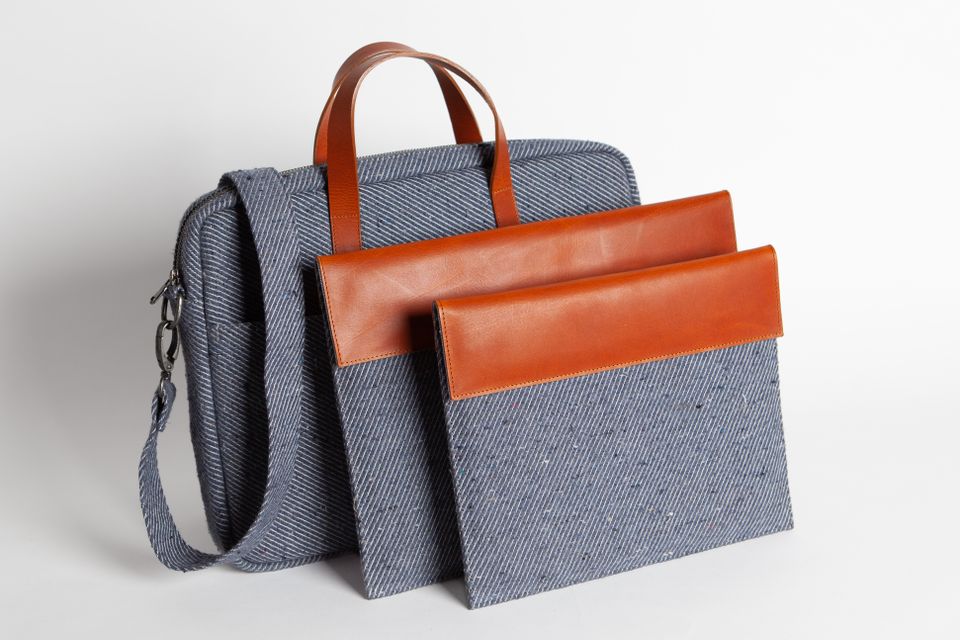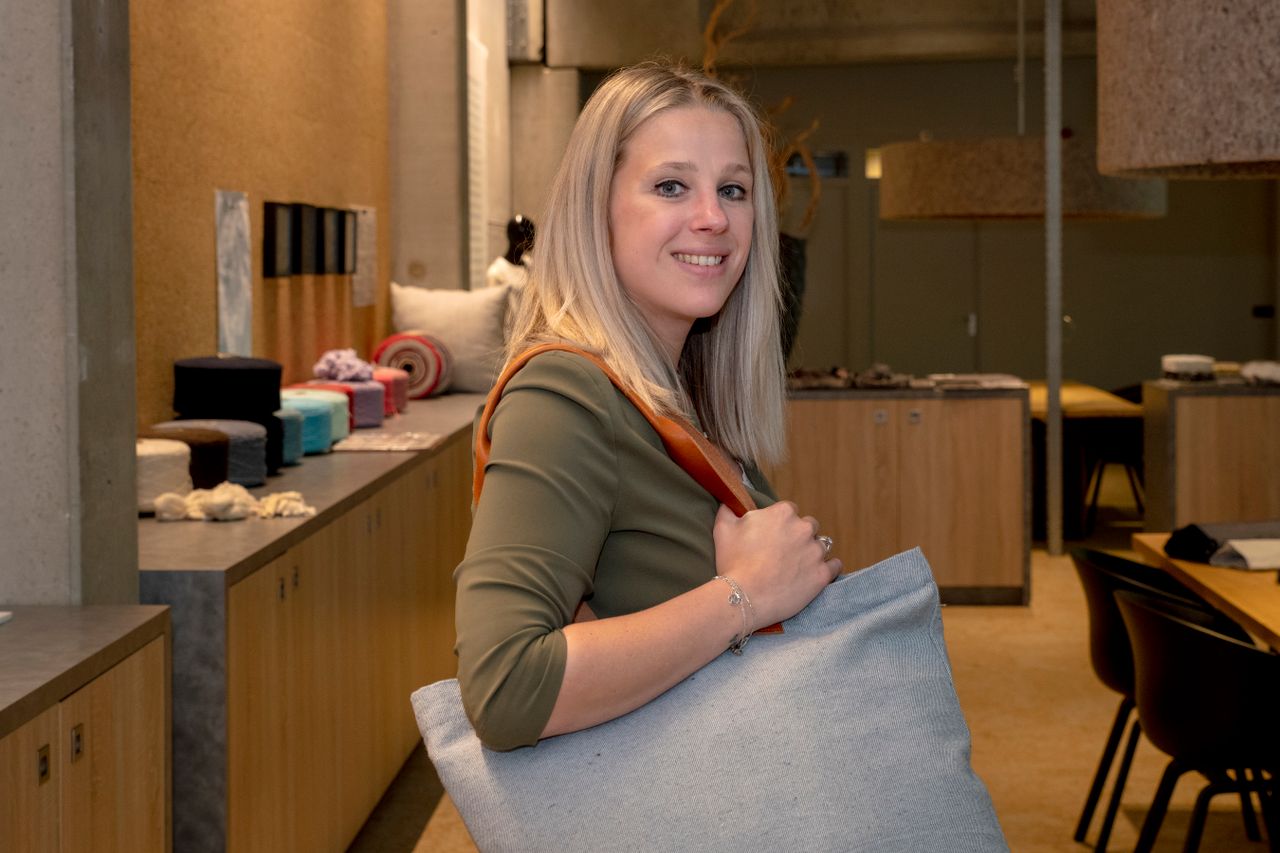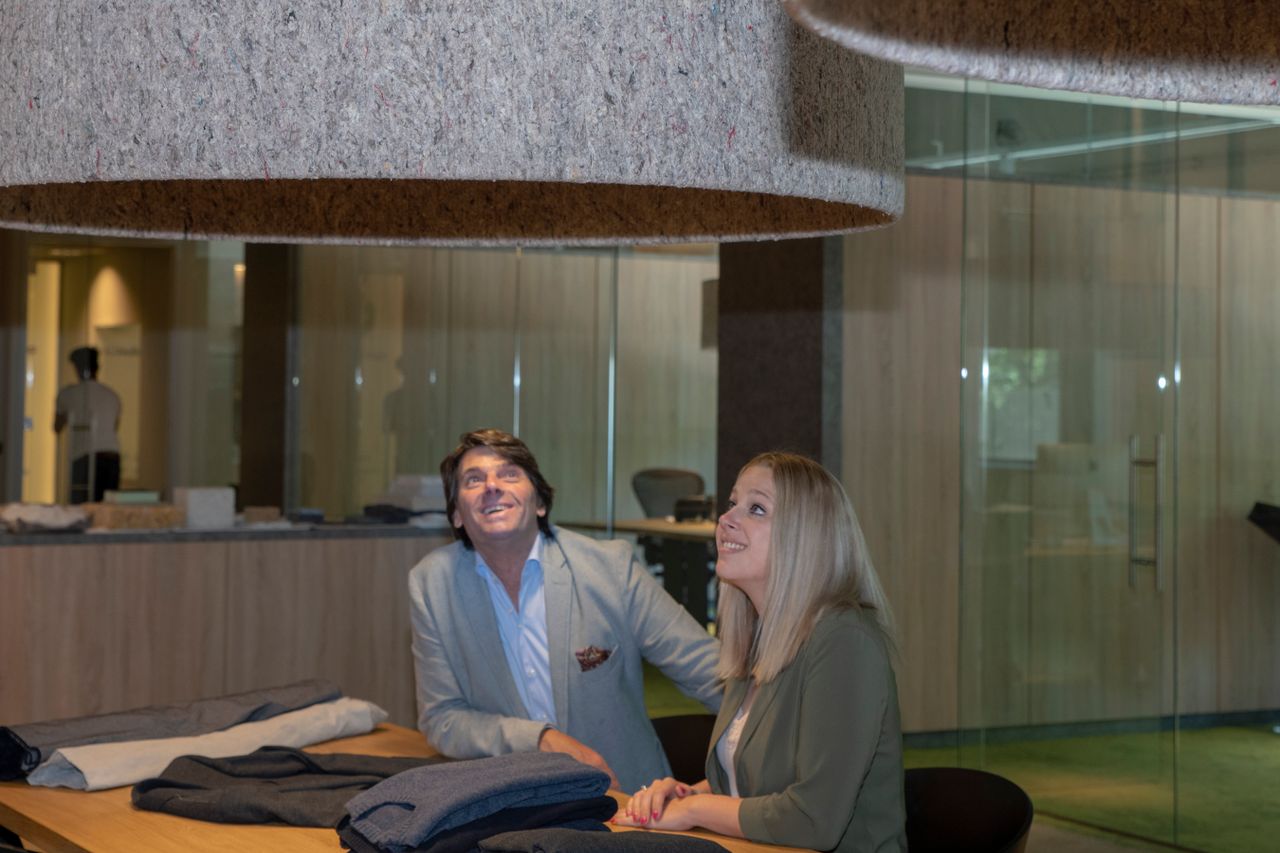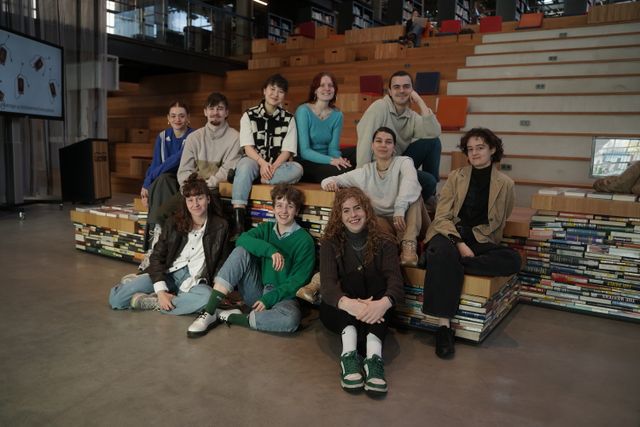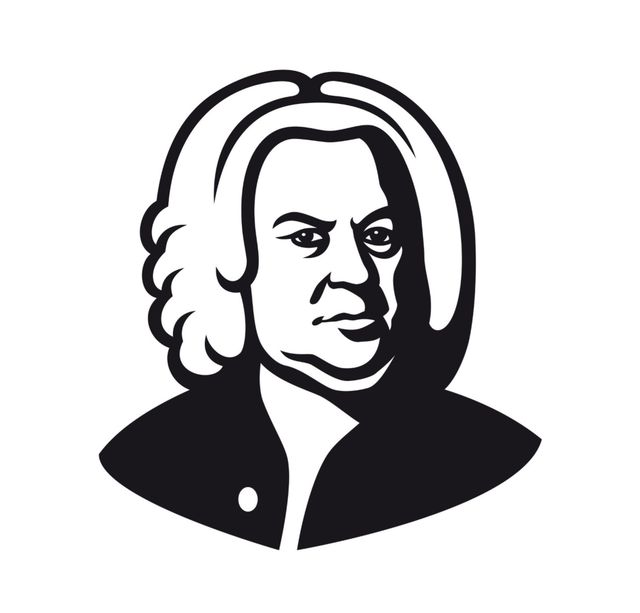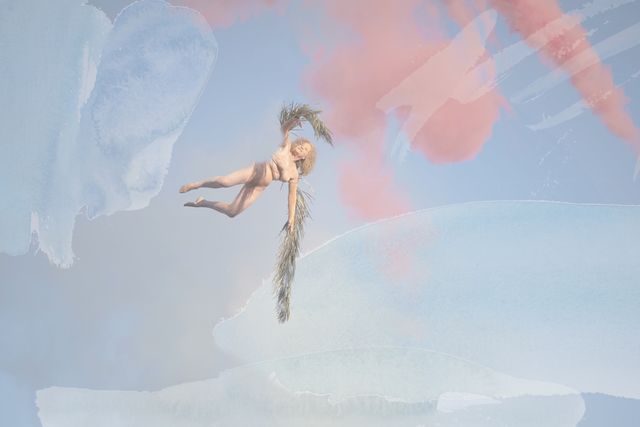Kimberley makes it in Tilburg
Kimberley van der Wal (30) belongs to the fourth generation of the Wolkat family business. She grew up opposite the Wolkat factory. Literally and figuratively raised between the rags. During a trip around the world she realized that there are many problems in the world. It became clear to her that a solution to some of these problems was right in front of her, namely within the family business. Wolkat is a group of innovative recycling companies that offers solutions for textiles, from collection to end products. Thanks to years of knowledge and experience, Wolkat is the knowledge leader in the textile industry. No other company can match what Wolkat does. This is a reason for Kimberley to join the family business and thus carry out her mission to make the world a better place. We talked to Kimberley about the history of the company, what her motives are and how she sees the future.
Kimberley joined the company in 2013 and is involved in business development/new business and marketing/communication, her father Philip Boumans develops the machinery and looks at products from the technical side. With eight people in Tilburg (R&D) and about 800 in Morocco, about 45 tons of clothing is sorted per day and 16,000 square meters of fabric are produced per week. In the course of next year, the figures will have doubled due to an expansion of the factory and improvement of the machinery.
The begin
"Grandma started the company in 1948. It was just after the Second World War, raw materials were scarce, the economic picture was not rosy. With the cargo bike she collected scrap and sold it on. At that time, the reuse of raw materials was already central to our company. In the 1960s, the textile industry came to Tilburg, and Wolkat was also a part of it. Textiles were traded, refined and dyed on the spot where the ETZ Twee Steden hospital is now located. My father joined the company at the age of 18 and discovered Morocco as a base and set up the sorting, spinning and weaving mill there."
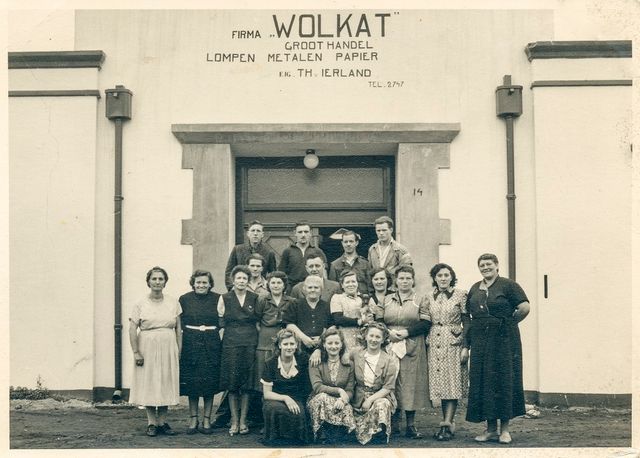
Business Driven Concept
"Recycled fibre was seen as a by-product, to be mixed with or to make things cheaper. This was not my father's vision. He found the raw material for further development. It has therefore been a "business-driven" decision to develop relatively cheap raw materials into end products, where we have the whole link in our own hands. For as long as I can remember, he says: 'What comes out of the ground is not infinite'. I also remember that we used to go on holiday and that he said about all the plastic rubbish that was lying around: 'The money is on the street'. He saw that as a raw material. The business model we have set up now is also the best model from a financial point of view, you don't have to go through a cash register at each link, it's only 1 cash register!"
Unique textile recycling model
"We're the only ones in the world who do it this way and have everything vertically integrated. You have people who can spin with recycled fibres, can weave with the yarns, parties who can recycle and sort. Each link is a business in itself, the fact that it is integrated makes us unique. We haven't invented any new technology. What also makes us unique is that we always look at what we get in, in terms of width, so that we can turn everything we get into an end product. If we can't spin it into yarn, we process it in a different way, for example into felt. We can process 94 to 96%, which is unique."
Just do it
"We don't deliver to consumers, we deliver to businesses. So there is never the name 'Wolkat' on a product. Because we are affiliated with NDAs (Non Disclosure Agreements), I am not allowed to say anything about our customers. In any case, there are many large fashionable textile brands, a large supermarket, a large company in the field of interior textiles and various globally operating companies. These processes are very long, which is why we are now also looking for a connection with the SME so that we can switch much faster. Together with Brokx-Schalken we have developed lamps. Together with Marieke Flipse and the municipality of Tilburg, we made clothes, not so much to sell as to show that you can make fun products from recycled materials. With a local fabric supplier, we have now started a development process; they want to include our fabrics in their collection; we do this as partners. But you have to have a certain volume to go through the whole process. We are working on the development of our own range, which is mainly so that SMEs can buy something in the future, but in principle we work mostly on request because we can also develop something specifically for the application that is required.".
013 Denim
"We are also looking to work with fashion brands, we support graduates and link our name and knowledge to studies such as those by The Ellen mcArthur Foundation (https://www.ellenmacarthurfoundation.org/) and Circle Economy (https://www.circle-economy.com/). There is also the ambition to continue with 013 Denim, a collaboration that arose around King's Day 2017 between various parties led by Rabobank and the municipality of Tilburg, to show on King's Day that textiles in Tilburg are still very much alive but in a different form than in the 1960s. Rabobank finances cotton farmers in Africa who produce organic cotton, we took one thread from it and collected jeans from schools in Tilburg and also processed them into new thread, which together became 013 Denim. I still see 013Denim bags in the streets, that's nice!"
R&D and Textiellab
"Products made in Morocco are tested here and further developed to European standards. There they have a different standard, in Belgium there is even a different standard than in the Netherlands. We want to further develop our products, this can be done by weaving and spinning techniques and we have that knowledge here, the innovative aspect is here. We are also looking at how we can finish fabrics, how the raw material (the recipe) needs to be adjusted in order to obtain a better end product. Most R&D is based on trial and error, we run the product through different tests, use it, let the end users use it and look at the result. Here in Tilburg I hope to get textile back in the short term by setting up a lab with some weaving machines to show others what happens to textile but also to be able to start working with it right away. In this way, I hope to arouse more interest among young people in taking up and valuing textile as a profession again, because that knowledge is now located in other countries and should certainly be preserved in Tilburg. But then applied in a new and innovative way in which we want to make accessible products, such as the products of 013 Denim.
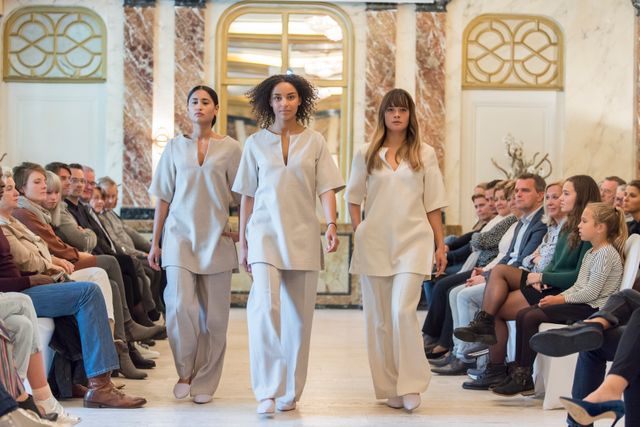
Transparency
"Especially in this world where there is a lot of vagueness and greenwashing, I want to tell our story as honestly as possible. Transparency is therefore a key word in our business. It is often not clear what happens to your clothes when you throw them away. By having the entire chain in our own hands, we can show the process exactly; this is sold, so much goes to developing countries, this remains in Europe, so much is in yarn and so much ends up in felt. We are trying to raise awareness, but we are not reaching consumers. I think it is right to try rather to convince the brands that they need to change because they deliver to the consumer. We have the technology and can solve some of the problem, but transferring it to the consumer must be done together with the government. It is sad that people are wearing and throwing away 4x clothes. That they have no idea what impact it has to make 1 pair of jeans and in what circumstances people work. Unfortunately this has not changed enough. Is there a role for us? I think we need to focus on making a good product in order to be able to create customer conviction more quickly. “
Tilburg, everything is here
"The location and accessibility of Tilburg is really fantastic, we do a lot of transport and you'll be in Rotterdam and Antwerp in no time. Tilburg is and will always be a textile city, this is alive and that's why we're here. We also want it to be preserved in Tilburg. Furthermore, Tilburg has everything; good business parks, a nice municipality with which you can spar, a lot has been invested in the development of the city, so a nice place to live and stay. It's just our city. We always try to solve everything locally and are therefore very happy that we have the cooperation with the fabric supplier. That feels good, it feels like helping each other and securing it here. Everything is here too, you don't have to look far, a wide range of companies are just present. And when I see what is happening here at Tilburg University, I think 'wow' what a talent there is here. So I don't have to leave here!"
The golden tip of Kimberley
"Maybe very cliché; don't be afraid to fail. Stick to the core, focus on yourself, don't be afraid to ask for advice."
Impact maker of the quarter
Because of the circular textile recycling model and the impact it has on a huge market, Wolkat has been named Impactmaker of the quarter. Impactmaker is the successor of 'Company of the Month' by the municipality of Tilburg and Make it in Tilburg (City Marketing Tilburg). Every quarter, the initiative focuses on a Tilburg-based company that distinguishes itself through innovation, creativity and entrepreneurship. They are the entrepreneurs in Tilburg who make an impact, both within and outside the city limits.
Wolkat completes the circle
-
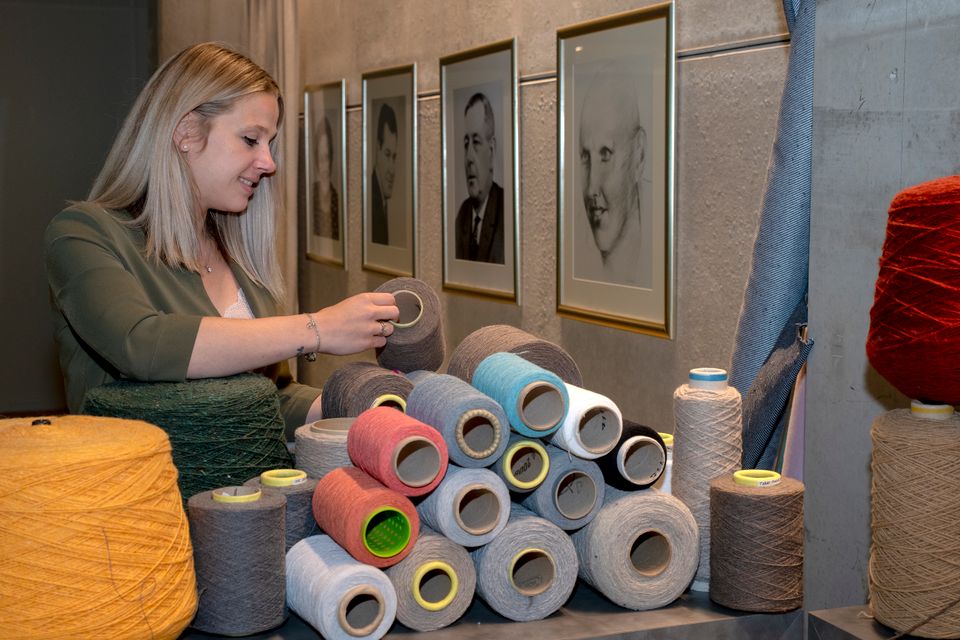
-
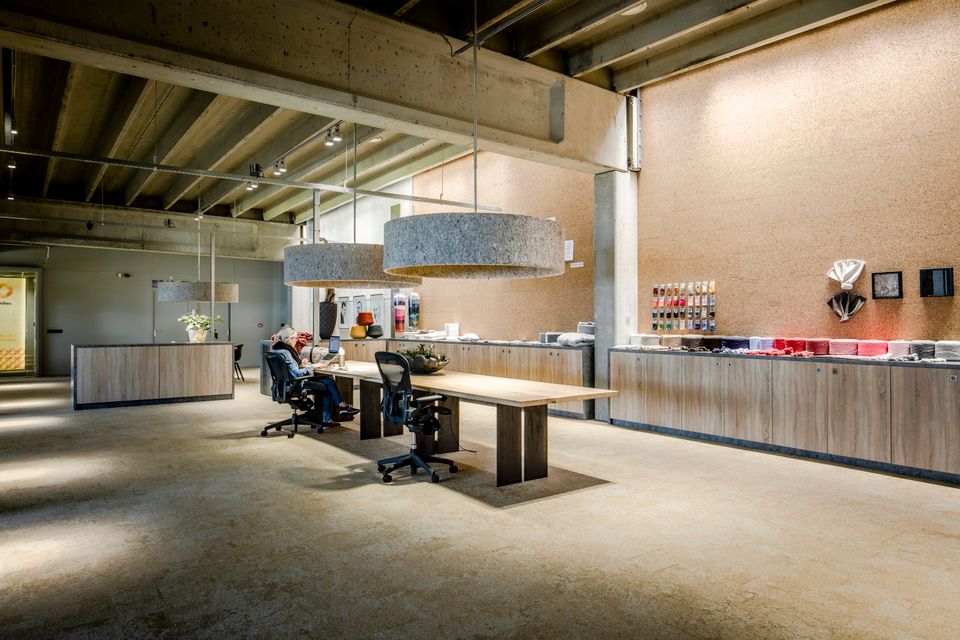
-
About Wolkat
About Wolkat

-
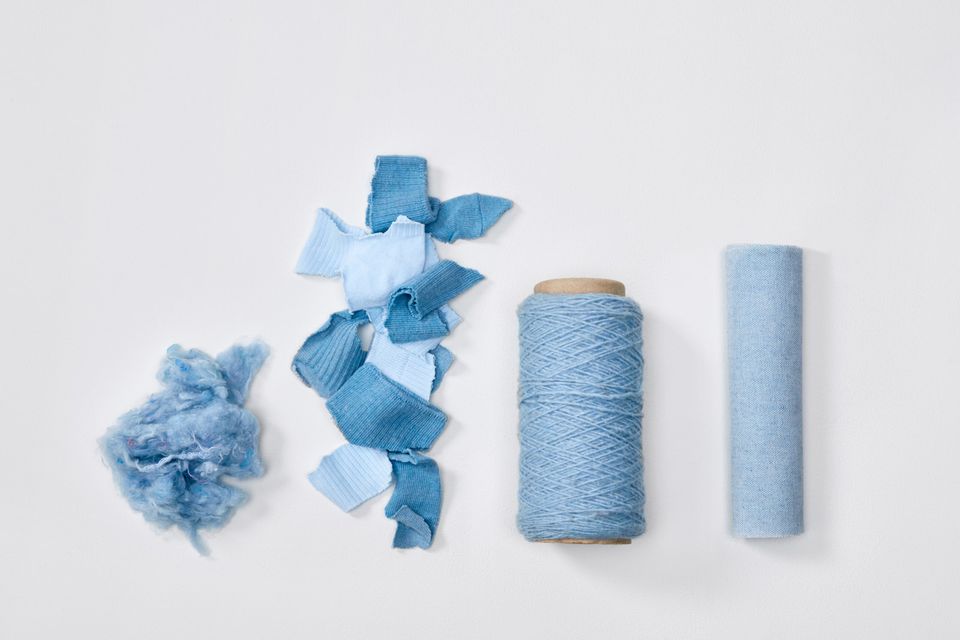
-
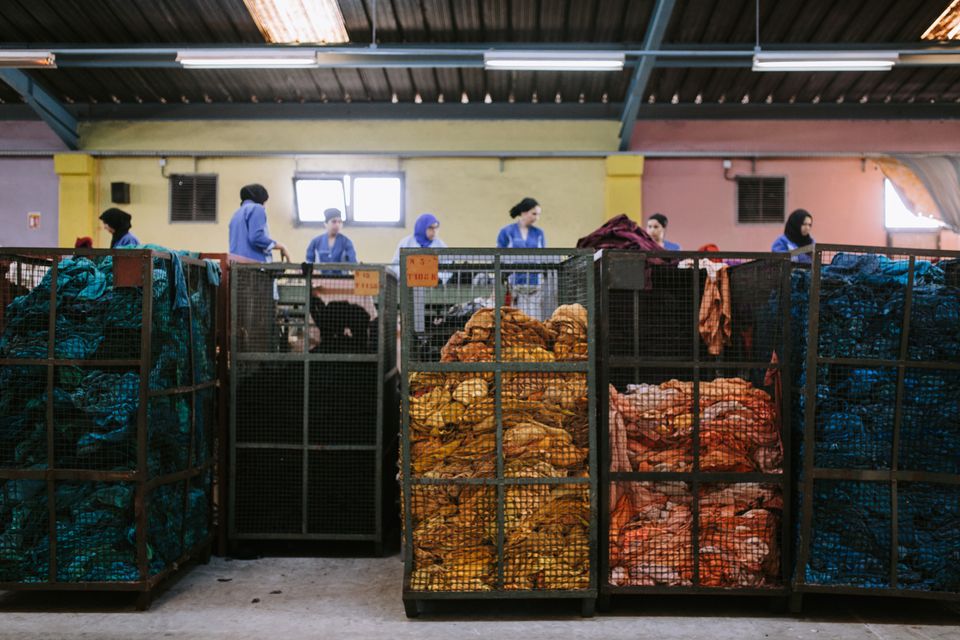
-
